I’m a big fan of discount dollar stores. From obscure kitchen gadgets to funky knickknacks, you will find everything that you never knew you needed in life. Some chain stores even have a fixed price for every item, that are pretty reasonable. For this trip, I went to Daiso where everything is $2.80. So for the next science project at home or the classroom why not check out your local dollar store for cheap alternatives to lab grade apparatus, or make-shift equipment without breaking the bank!
Science toys
This kaleidoscope that I found has a marble lens at the end, instead of the usual confetti. Investigate the amazing optical effects observed when you point it at the world around you!
Useful for chemistry experiments
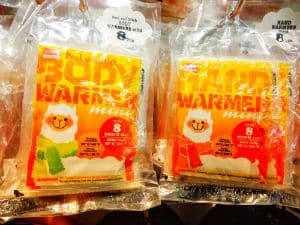
Bodywarmer
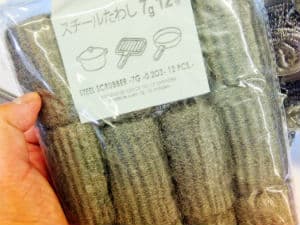
Steel wool
These pocket warmers work by catalysing the oxidation of fine metal powders, to produce a decent amount of heat! A great demonstration of oxidation and exothermic reactions for your next chemistry lesson. Fine mesh steel wool is also very useful for experiments where you are comparing how different types of materials react to different chemicals or conditions, such as this one.
Useful for dealing with small quantities
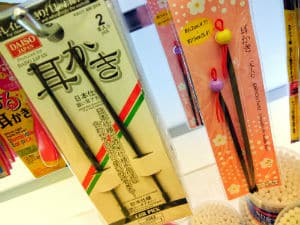
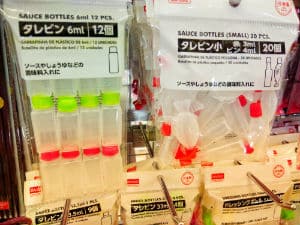
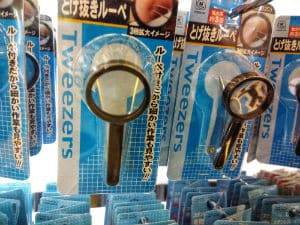
Sometimes it is tough to work with small amounts of chemicals or materials, without specialised equipment like mini spatulas or pipettes. These “ear scoops” are very popular in Asia, but they are absolutely brilliant for transferring low quantities for powders or other solids for your chemistry experiment. For liquids, these tiny sauce bottles are fantastic for little hands to precisely add drop by drop. The ingenious hybrid of tweezers and a magnifying glass allows you to work with small electronics or anything delicate.
Useful for changing experiment conditions
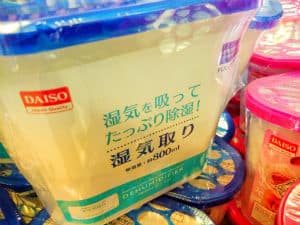
Compact dehumidifier
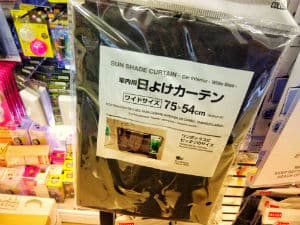
Shade curtain
This compact desiccant dehumidifier isn’t just useful for keeping the damp out of your closet, but it can also help you remove moisture from your experiment if a nice and dry environment is required. And if it’s darkness you need, this sun shade curtain designed for car windows would work just as well around containers that need to be kept out of the light.
Useful for food science experiments
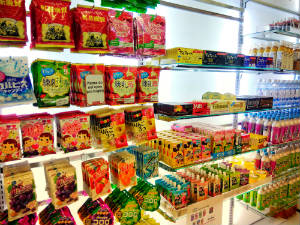
A range of food items for your next science experiment!
If your next class project involves investigating food products, why not incorporate some comparison between Australian and international products? Avoid hefty shipping costs by buying imported items often available at these shops!
Useful for physics experiments
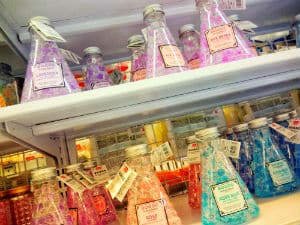
Water beads
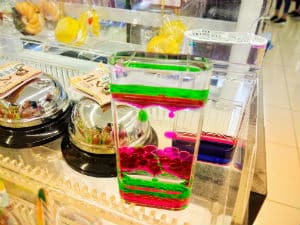
Liquid hour glass
Water beads are great for experiments about light! Try throwing them into a drinking glass or jar and see what happens. Hold one up to your eye and look around…how does it distort the images you see? A bonus that they are also scented and smell lovely! This liquid hourglass can be a great demonstration of the specific gravity of different liquids, you can leave it anywhere in the classroom and kids will be entertained for ages!
For all experiments: safety and storage
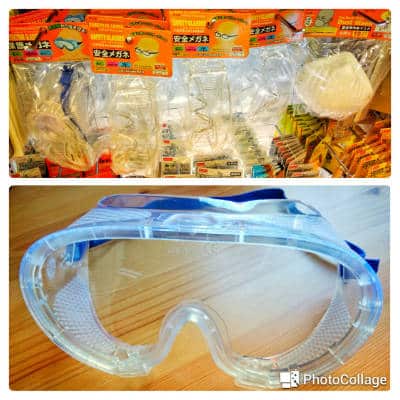
Safety glasses
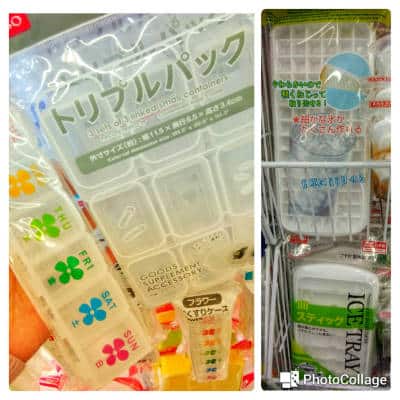
Medication containers & ice cube trays
Safety comes first when doing any experiment. I found some safety gear to add to our workshop and show kits! There was a great selection of goggles, face masks, and gloves, at a fraction of the cost compared to other retailers. Sometimes teachers and parents ask me about better alternatives for things they can do experiments in….these medication containers and ice trays are my go-to when I do experiments like the one from this garden chemistry blog. The compartments are ideal for holding small quantities of reactants, and they are side-by-side for easy visual comparison.
I hope that the next time you visit your local discount dollar store, you will be inspired to find more items and hacks for that science project!
Happy teaching,
NEW Primary science teaching book!
“Be Amazing! How to teach science, the way primary kids love”
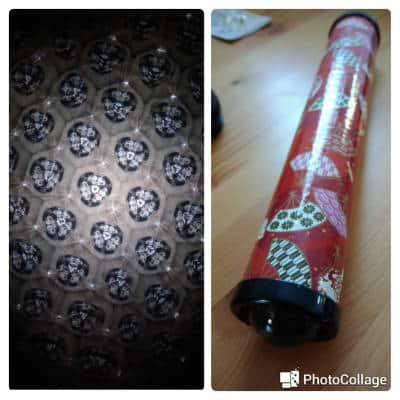

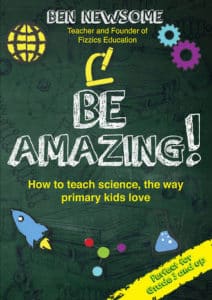

























Comments